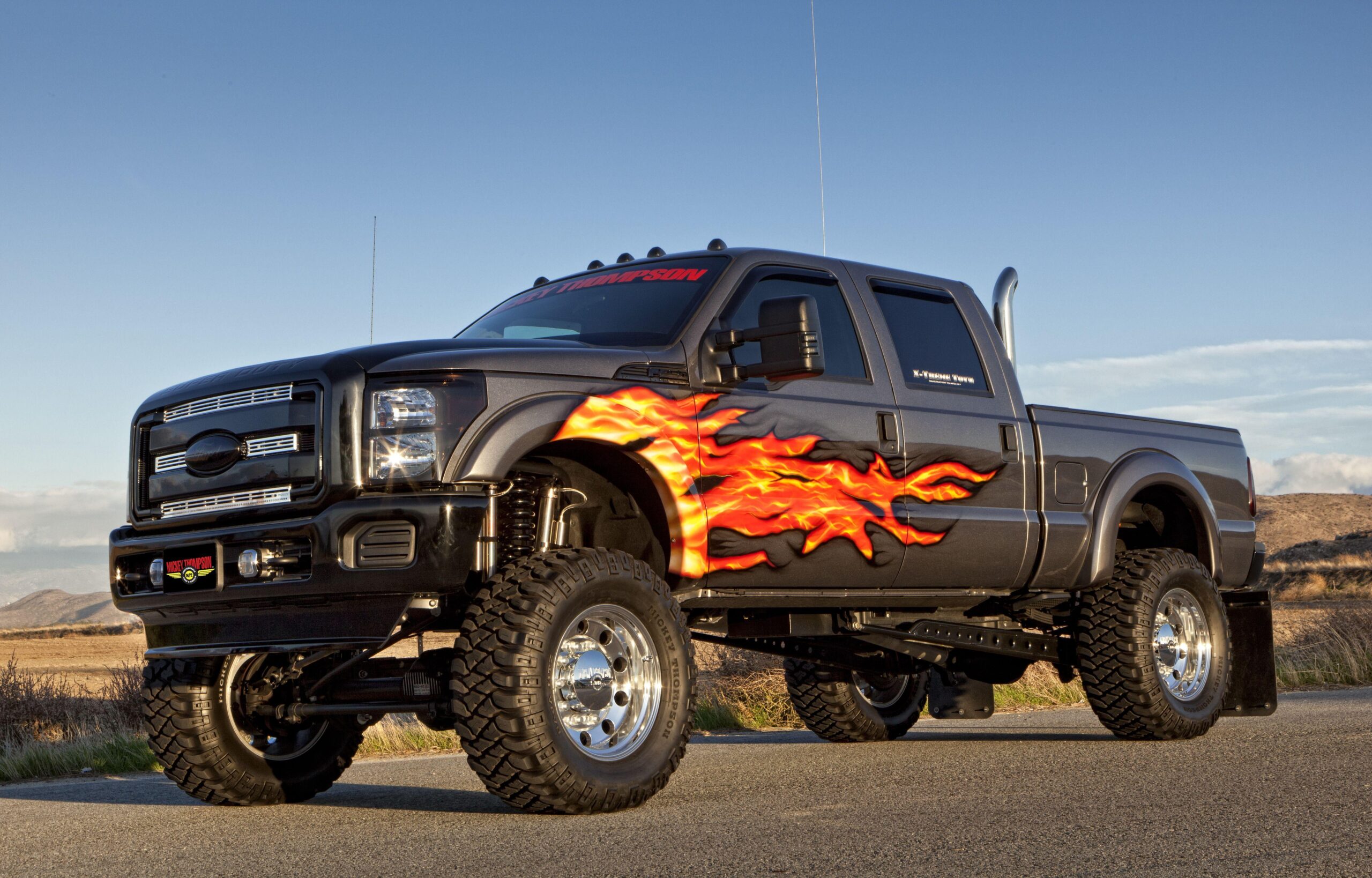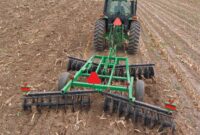Trucks For Sale Under $500: The Ultimate Guide to Bargain Bin Buys sale.truckstrend.com
The allure of a truck for under $500 is powerful. In an era where even the most basic used cars fetch thousands, the idea of acquiring a robust, versatile vehicle for pocket change seems like a dream come true. However, before you jump headfirst into this ultra-budget market, it’s crucial to understand the profound reality of what a "truck for sale under $500" truly represents. This isn’t about finding a diamond in the rough; it’s about sifting through a junkyard to find a specific, often non-functional, piece of metal that might serve a very particular, limited purpose.
This comprehensive guide will navigate the often-murky waters of the sub-$500 truck market. We’ll explore what you can realistically expect, who these trucks are for, where to find them, the myriad challenges you’ll face, and how to potentially extract value from such an extreme bargain. Prepare to temper your expectations and embrace the world of parts, projects, and pure scrap.
Trucks For Sale Under $500: The Ultimate Guide to Bargain Bin Buys
The Harsh Reality of $500 Trucks: What to Expect
Let’s be unequivocally clear: a truck for sale under $500 will almost certainly not be a drivable vehicle, let alone a reliable daily driver. If you’re hoping to pick up a cheap workhorse for your commute or weekend errands, you’re looking in the wrong price bracket.
Here’s a breakdown of what you can realistically expect from a truck in this price range:
- Non-Running Condition: The vast majority of trucks under $500 are sold as "non-running" or "for parts." This means the engine might be seized, transmission blown, electrical system fried, or a critical component missing entirely. Getting it running would likely cost thousands, far exceeding the initial purchase price.
- Significant Mechanical Issues: Even if a seller claims it "just needs a battery" or "runs rough," assume the worst. Common problems include blown head gaskets, rusted-through brake lines, severely worn suspension components, major fluid leaks, or catastrophic engine/transmission failure.
- Extensive Body Damage and Rust: Expect significant body rust, including frame rust (a critical safety issue), missing panels, smashed lights, shattered windows, and a generally dilapidated appearance. Cosmetic issues are the least of your worries here.
- Missing or Damaged Interior: Seats might be torn, dashboards cracked, and interior components missing or non-functional. Don’t expect working AC, heat, or even a functional radio.
- Title Issues: This is one of the biggest hurdles. Many trucks at this price point will not have a clean title. They might have a salvage title, a missing title, or be sold with a "bill of sale only." Without a proper title, you cannot legally register the vehicle for road use in most jurisdictions, limiting its utility to private property or as a source of parts.
- Environmental Hazards: Be prepared for potential fluid leaks (oil, coolant, brake fluid), which can pose environmental concerns and require careful handling.

In essence, a truck under $500 is less a vehicle and more a collection of metal, plastic, and rubber that once was a vehicle.
Who is a $500 Truck For? Identifying the Niche Buyer

Given the grim reality, who would even consider buying a truck for less than $500? This market caters to a very specific set of individuals with particular needs and skills:
- The Master Mechanic / DIY Enthusiast: If you possess advanced mechanical skills, a well-equipped garage, and a passion for challenging projects, a $500 truck can be a learning platform. It’s a chance to tear down an engine, learn welding, or practice bodywork without the pressure of ruining an expensive vehicle.
- The Parts Hunter: This is perhaps the most common and practical use. If you own a similar make and model truck that needs specific, expensive parts (e.g., a differential, an engine block, a specific body panel, an obscure interior component), buying an entire non-running truck for $500 can be cheaper than sourcing individual used parts.
- The Scrap Metal Entrepreneur: Trucks are heavy. If you have the means to transport and dismantle a non-running vehicle, you can often sell the various metals (steel, aluminum, copper from wiring) to a scrap yard for a profit that might exceed your initial investment, especially if you can get the truck for $200-$300.
- The Farm/Private Land Utility User (Extreme Niche): In very rare cases, if you own private land (a farm, large acreage) and need a basic, slow-moving vehicle for tasks like hauling firewood a short distance or moving tools around, a $500 truck might be made to move under its own power with minimal, essential repairs. Crucially, this is strictly for off-road, private land use, and you’d still need to ensure basic safety (brakes!).
- The Art Project / Yard Ornament: For the truly unconventional, a non-running truck can be a canvas for automotive art or a unique, rustic decoration for a large property.

If you don’t fall into one of these categories, a $500 truck is likely to become an expensive paperweight and a source of frustration.
Where to Find Them & What to Look For (Even When They’re Broken)
Finding a truck for under $500 requires patience, a keen eye for "potential," and an understanding that most listings will be wildly optimistic.
Primary Hunting Grounds:
- Online Classifieds:
- Craigslist: Still a go-to for incredibly cheap vehicles. Search terms like "parts truck," "non-running truck," "project truck," "mechanic special," or simply "truck under $500."
- Facebook Marketplace: Increasingly popular for local sales. Use similar search terms and filter by price. Join local automotive groups or "for sale" groups.
- Local Forums/Community Boards: Smaller, hyper-local platforms can sometimes unearth hidden gems from people just wanting to get rid of something quickly.
- Salvage Yards / Junkyards: While primarily for parts, some salvage yards sell whole vehicles, especially older ones that have been sitting for a long time. Their prices might be based on weight or condition.
- Word-of-Mouth: Let friends, family, and mechanics know you’re looking for a cheap, non-running truck. Someone might have an old one sitting in their yard they’d be happy to offload.
- Farm Auctions / Estate Sales: Less common for this price point, but occasionally an old farm truck might go for very little if it’s in terrible shape.
Crucial Inspection Points (Even for a Non-Runner):
Even if the truck doesn’t run, you need to assess its condition relative to your intended purpose.
- Title Status (CRITICAL): Ask upfront if the seller has a clean, transferable title. If not, understand that your options are severely limited (parts or scrap). Do not assume you can easily get a lost title.
- Frame Rust: This is paramount. If the frame is rusted through or severely compromised, the truck is unsafe for any structural purpose and its value plummets to scrap metal only. Look under the truck with a flashlight, especially near the axles, suspension mounting points, and cab mounts. Poke it with a screwdriver.
- Completeness: Are major components missing (engine, transmission, axles, wheels, doors, tailgate)? The more complete it is, the more useful it might be for parts or a project. Missing components significantly reduce its value.
- Engine/Transmission (Visual Check):
- Engine: Look for obvious holes in the block, major leaks, or signs of fire. Check the oil dipstick for milky fluid (head gasket) or extreme sludge. Try to turn the crankshaft pulley by hand (if possible and safe) to see if the engine is seized.
- Transmission: Check fluid level and color (if possible). Look for major leaks.
- Tires and Wheels: Are there at least four tires that hold air? This is essential for moving the truck, even short distances, or loading it onto a trailer. Flat tires can mean the truck has been sitting on bare rims, which can damage the hubs.
- Overall Condition: Assess the extent of body damage, interior decay, and general neglect. This impacts scrap value and project difficulty.
- Fluid Leaks: Puddles under the truck indicate significant leaks. While common for non-runners, large leaks might make transportation or storage problematic.
The "Why Buy?": Potential Uses & Limited Benefits
Despite the significant challenges, a sub-$500 truck can offer niche benefits if approached with realistic expectations:
- Cost-Effective Parts Donor: For specific, hard-to-find, or expensive parts, buying a whole donor truck can be significantly cheaper than buying individual components new or even used from a specialized parts dealer.
- Scrap Metal Value: The sheer weight of a truck means it has inherent value in scrap metal. If you can acquire it cheaply enough and have the means to transport it to a scrap yard, you can often recoup your investment and even make a small profit.
- Educational Project: For aspiring mechanics or welders, a $500 truck provides a low-stakes platform to practice skills, learn about automotive systems, and gain hands-on experience without the fear of damaging a valuable vehicle.
- Private Land Hauler (Very Limited): As mentioned, if you have private land and simply need a utility vehicle for very light, occasional hauling, a bare-bones truck that can be coaxed into moving might serve. However, ensure it’s safe enough for your purposes.
- Storage Solution: An old truck bed can serve as temporary outdoor storage for tools, firewood, or other items, essentially acting as a mobile (or not-so-mobile) shed.
Challenges & Pitfalls: Beyond the Purchase Price
The $500 purchase price is just the tip of the iceberg. The true costs and challenges often lie in what comes next.
- Transportation Costs: If the truck doesn’t run (which it won’t), how will you get it home? Towing services for non-running vehicles can easily cost several hundred dollars, instantly doubling or tripling your initial investment. You’ll need a robust tow strap, a truck capable of towing, or a flatbed trailer.
- Repair Costs vs. Value: The cost to make a $500 truck roadworthy will almost always exceed its market value. A simple engine repair, transmission rebuild, or comprehensive brake overhaul can easily run into thousands of dollars. You’re buying a problem, not a solution.
- Title and Registration Headaches: A missing or salvage title will prevent you from legally registering the truck for road use. The process to obtain a new title can be lengthy, expensive, and often impossible for older, low-value vehicles. Without a title, its use is confined to private property or as scrap.
- Environmental Responsibility: Dealing with old fluids, potentially leaking components, and eventual disposal requires environmental awareness. Improper disposal can lead to fines and harm to the environment.
- Storage Space: A non-running truck takes up significant space. Do you have a suitable, legal place to store it while you work on it or wait to scrap it?
- Time Commitment: Repairing or dismantling a truck is a massive time commitment, often spanning weeks or months, depending on your schedule and skills.
- Safety Concerns: Working on an old, dilapidated vehicle can be dangerous. Rusted components can break, heavy parts can fall, and fluids can be hazardous. Always prioritize safety.
Making the Most of Your $500 Truck: Practical Advice
If you’ve weighed the risks and still believe a sub-$500 truck is right for you, here’s how to maximize your chances of success:
- Define Your Purpose Clearly: Before you even look, decide why you want this truck. Is it for parts? Scrap? A specific farm task? This will guide your search and prevent impulse buys.
- Set a Firm Budget (Including Hidden Costs): Your $500 is for the purchase. Add another $200-$500 for towing, fluids, basic tools, and unexpected minor costs. Don’t go over this total budget.
- Prioritize Title Status (Unless Scrap is Your Only Goal): If there’s any chance you want to use it on private land or attempt to make it movable, a title is a huge bonus. For pure scrap or parts, it’s less critical.
- Inspect Thoroughly: Bring a flashlight, a magnet (to check for body filler over rust), and a knowledgeable friend if possible. Don’t be swayed by a seller’s vague assurances. Assume the worst.
- Negotiate Aggressively: The seller wants it gone. Offer less than the asking price, especially if you find more issues. $300 for a $500 truck is a good starting point.
- Plan for Transportation: Have a clear plan for how you will move the truck before you buy it. Get quotes for towing if you can’t do it yourself.
- Have the Right Tools and Space: Ensure you have the necessary mechanical tools, safety equipment, and a designated, legal space to work on or store the truck.
- Know When to Walk Away: If the title is missing, the frame is swiss cheese, or the seller is evasive, simply walk away. There will always be another $500 truck.
Table: Value Proposition for Trucks Under $500
| Condition & Status | Typical Price Range | Key Characteristics | Best Use Cases | Primary Challenges |
|---|---|---|---|---|
| Scrap/Parts Only | $100 – $300 | Non-running, major structural rust, no title, significant parts missing, severely damaged. | Scrap metal, donor for a few specific large components | Transportation, dismantling, environmental disposal. |
| Major Project/Farm Use | $300 – $500 | Non-running or barely running, extensive mechanical/electrical issues, body damage. Title might be present but not guaranteed. Frame generally solid. | Full mechanical restoration project, private land utility (farm truck). | High repair costs, extensive labor, title transfer. |
Note: These are general guidelines. The actual value is highly dependent on local market conditions, specific model/year, and the seller’s urgency.
Frequently Asked Questions (FAQ) about Trucks For Sale Under $500
Q1: Can I really find a reliable daily driver for under $500?
A1: Absolutely not. Any truck for under $500 will require extensive, costly repairs to be roadworthy, if it’s even possible. It’s not a viable option for daily transportation.
Q2: What are the most common problems with trucks in this price range?
A2: Non-running engines, blown transmissions, severe frame rust, significant body damage, and a lack of a clean, transferable title are the most prevalent issues.
Q3: Do these trucks usually come with a title?
A3: Often, no. Many sellers will only have a bill of sale, or the title will be missing/salvaged. This severely limits its legal use for public roads. Always ask about the title upfront.
Q4: How do I get a non-running truck home if I buy it?
A4: You will need a tow truck (professional or a friend with a capable truck and tow bar/trailer) or a flatbed trailer. Factor in towing costs, as they can easily exceed the purchase price.
Q5: Is it worth fixing up a $500 truck?
A5: Rarely, if your goal is a roadworthy vehicle. The cost of parts and labor will almost certainly far exceed the truck’s eventual market value. It might be "worth it" as a learning experience or if you need a specific set of expensive parts for another vehicle.
Q6: What’s the best use for a truck under $500?
A6: The most practical uses are as a source of scrap metal, a donor vehicle for parts for another similar truck, or a challenging mechanical project for someone with advanced skills and resources.
Q7: Can I use it on my farm or private property?
A7: Yes, if you can get it running and ensure basic safety (like working brakes), it could potentially serve as a utility vehicle on private land. However, it cannot be driven on public roads without proper registration and insurance, which requires a clean title and roadworthiness.
Conclusion
The market for "Trucks For Sale Under $500" is a unique and challenging landscape. It is not a pathway to affordable transportation, but rather a specialized niche for those seeking parts, scrap metal, or an extreme mechanical project. Success in this realm hinges entirely on tempering expectations, understanding the profound limitations of such a low budget, and having a clear, realistic purpose for the purchase.
Approach these listings with caution, a critical eye, and a pragmatic understanding of the hidden costs and challenges. If you’re a skilled mechanic, a dedicated parts scavenger, or an aspiring scrap entrepreneur, a $500 truck might just be the raw material for your next endeavor. For everyone else, it’s a valuable lesson in what constitutes "too good to be true."




